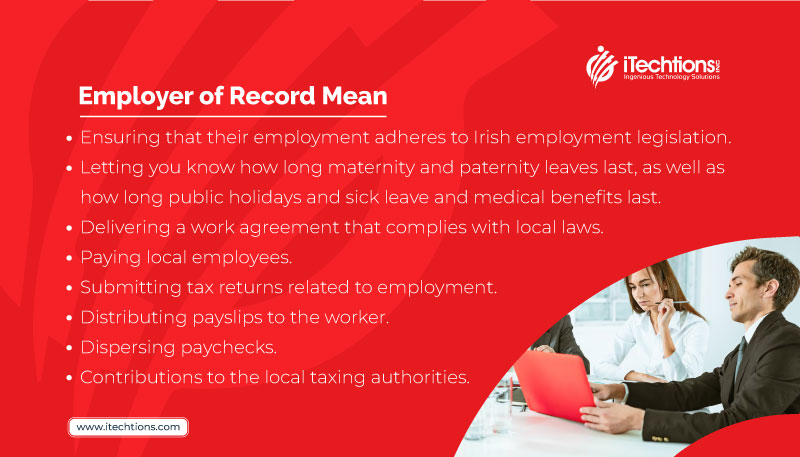Introduction
Foreign nationals often look to Canada as a land of opportunity, hoping to secure a comfortable life for themselves and their families. One of the biggest concerns our clients express is how to find work there.
We’ve laid out the steps you need to follow below to make the most of your Canadian job search. Let’s get started…
Options if I want to hire a worker in Canada?
HQ Country Employment & Payroll:
Under this method, the person working in Canada is employed and paid directly by the company’s HQ entity. While this may seem attractive, it is generally not legal in the long term. HQ payroll will not be possible if the person is not a tax resident in the HQ country. As such, this method is not recommended for long-term or full-time employment in Canada.
Independent Contractor Agreements:
Under this method, people are locally registered as sole traders or limited liability company owners in Canada and invoice for their work. There is no direct employment relationship between the company and the worker. While this method may work for some short-term or project-based engagements, it is not a compliant or legal way to engage full-time workers who work solely for your company. It can also present challenges in attracting and retaining talent.
Direct Local Employer Setup:
Setting up as a fully-compliant local employer is another option. This typically involves setting up a local entity and local tax registration. However, this method can be expensive, time-consuming, and complex. There are unknowns around how obligations and costs will evolve, and companies will need to stay on top of changes in regulations.
Partnering with an Employer of Record Canada / Full-Service Professional Employer Organisation:

This method involves employment being handled by a platform that specializes in employing people on behalf of customer companies. The Employer of Record Canada (EOR) helps to hire and pay employees, and all employment-related compliance is managed by the EOR. This method can be a more cost-effective and efficient way to employ workers in Canada. However, for some countries, the ongoing costs may be higher than direct employment, and there may be a need to educate employees about how the employment relationship will work.
Setting up a Business in Canada…
The legal aspects of starting a business vary by province. Starting a business in Canada is a dream for many newcomers who’ve moved here to build a better professional and financial future for themselves. This requires you first need to understand the rules and regulations for owning a business in Canada.
Although the setting up process is straightforward but when the employer needs to run payroll for their Canadian employees every month, file taxes, extend and manage employee benefits, follow changes rules and regulations, and adhering to all other regulations that apply when you start running a business in Canada becomes a bit difficult.
Employing people as independent contractors
Understanding the difference between an employee and a contractor is essential, as it will help shed light on the matter we are facing.
Many employers practice employing remote workers as independent contractors, it’s a bad idea. Employment is a legal relationship that is complex and requires fulfilling a plethora of regulations and protections that extend far wider than paying someone a salary. On the other hand, contracting is based on a commercial agreement between both parties, with services being exchanged for a fee.
If an individual is giving their full-time attention to the company in Canada, treating them as an independent contractor is a likely breach of Canadian employment laws and of those in your country.
A legal employment relationship must be established and monitored to protect employees, assuring that all taxes are paid, sick pay is paid, social welfare payments are made, paternity benefits are paid, maternity benefits are paid, and other benefits are provided.
Governmental bodies in every country actively seek to make sure individuals are employed the right way and receive all their rights. One way most of them would see employment “done wrong” is if a company hires full-time workers as independent contractors because that directly strips them from those rights. It’s also seen as evading taxes and other payments they would be obliged to pay as an employer of people.
Why does compliance matter in Canada?
To get rid of the above problems, HR compliance makes sures that the policies and procedures respect rules and regulations regarding employment and work practices. It ensures the smooth running of the business, protect employee rights and minimise your risk of liabilities as an employer.
Meaning of the Employer of Record

It denotes that, in the eyes of the Canadian government, tax authorities, and employment authorities, Boundless is the person’s legitimate employer. We are in charge of informing you of any prerequisites for employment.
-
- Ensuring that their employment adheres to Irish employment legislation
-
- Letting you know how long maternity and paternity leaves last, as well as how long public holidays and sick leave and medical benefits last.
-
- Delivering a work agreement that complies with local laws
-
- Paying local employees
-
- Submitting tax returns related to employment
-
- Distributing payslips to the worker
-
- Dispersing paychecks
Contributions to the local taxing authorities
Customers who collaborate with a Canadian Employer of Record are in charge of: finding and hiring their own Canada workers
-
- Controlling the worker’s daily workload
-
- Contributing through work to the employee’s personal and professional growth
-
- The employment contract, public holidays, annual leave, sick leave, maternity and paternity benefits, probationary periods, overtime pay, statutory redundancy payouts, liability insurance, and many other legal duties in Canada that we may provide assistance on.
-
- Making sure payroll expenses for their team are paid to Boundless prior to the deadline for each pay cycle.
Costings to employ someone in Canada
It is essential to understand the costs associated with employing someone. While the gross salary you offer is a significant factor in the decision of a potential employee to work for you, it’s not the only cost to consider.
There are other mandatory costs that come with hiring employees in Canada, such as pension plans contribution, employment insurance, and employer health tax. Both employers and employees need to pay taxes in Canada. For employers, these include contributions to pension plans, employment insurance, and employer health taxes; for employees, they include contributions to Canada pension plans, employment insurance, and income taxes.









